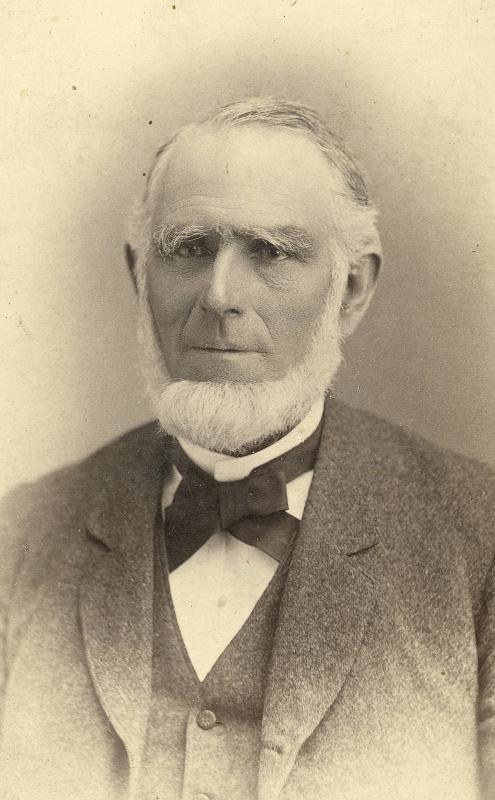5.2 Bill of sale, Margaret Thompson McMeans and Abraham O. Smoot sell an enslaved woman named Lucinda to Thomas S. Williams for $400.00 in Utah Territory
Margaret Thompson McMeans and Abraham O. Smoot sell an enslaved woman named Lucinda to Thomas S. Williams for $400.00 in Utah Territory, March 1, 1852
Document Introduction
Within a month of the passage of An Act in Relation to Service, Abraham O. Smoot, or more precisely his wife Margaret Thompson McMeans Smoot, sold an enslaved woman named Lucinda, commonly called Lucy, to merchant and trader Thomas S. Williams.[1] Probate judge Elias Smith approved the sale. Even though the transaction was dated March 1, 1852, Lucy’s new enslaver, Thomas S. Williams did not file it with the court until July 10, 1856. On that same day another enslaver, Williams Camp, registered Dan, his enslaved person with the court. Because of the legal questions raised in the Dan Camp case, Williams was likely motivated to ensure his right to Lucy’s labor was legally secure and so filed the sale with Judge Smith. The bill of sale indicates that Williams paid Margaret Smoot $400.00 for Lucinda. The exchange included Margaret and not Abraham simply because Abraham was in England as a missionary for the Church of Jesus Christ of Latter-day Saints when the sale took place. The document includes a note on the back which indicates that the transaction was “Recorded on page 8 of Probate Register of Servants,” a missing register that if found might shed additional light on how the law played out in practice.
If Judge Smith followed provisions of the law, he would have privately interviewed Lucy, without Smoot or Williams present, to ensure that she gave her consent. The bill of sale is the only surviving document to detail the transaction and it offers no evidence that such an interview did or did not take place. Lucy was about 16 years old at the time of the transaction. Her understanding of the events and what the sale meant to her is frustratingly missing from the historical record. She was sold from one enslaver to another, perhaps with her consent, but certainly without much if any power on her part to alter the outcome of decisions being made by white people who claimed control over her. Even if Judge Smith did interview her and she registered an objection to the sale, would it have mattered? Would her opposition have been enforced? What might her life have been like had she objected to the sale and the court forced the Smoot family to retain her? Would it have produced resentment against her and potential negative ramifications? Even if Lucy offered her consent as required by law, she was still not free and decisions about her fate were made outside of her control.
[1] Abraham O. Smoot, Bill of Sale of Lucinda to Thomas S. Williams, March 1, 1852, Series 373, Reel 5, Box 4, Folder 26, Utah Division of Archives and Records Service, Salt Lake City, Utah.


